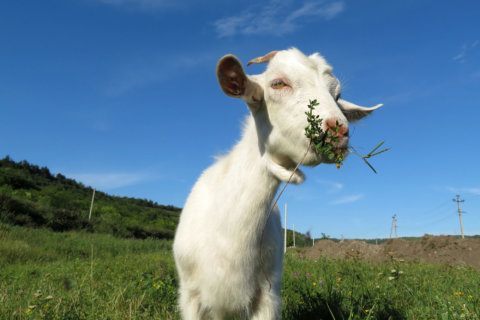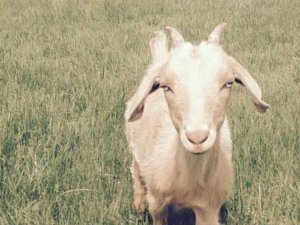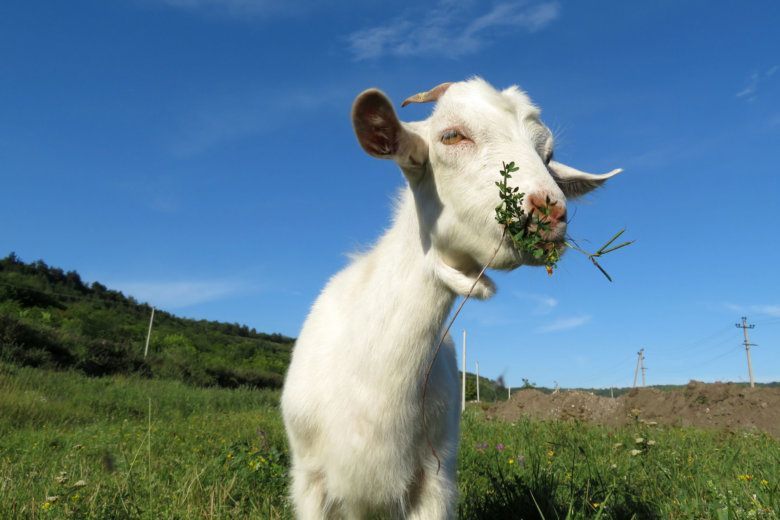
After years of using herbicides, the town of Leesburg, Virginia, plans on bringing in goats to chew back weeds along three waterways.
The Leesburg Town Council voted to employ goats rather than herbicides in three stream bank floodway channels, which must be clear of weeds to prevent flooding.
After concern from some about the potential safety risks of herbicides, the town voted to take bids from local goat farmers, with the goal of having them chewing by June.
Elisabeth Grys, owner of Glorious Goats based in Purcellville, said her animals will be glad to eat away Leesburg’s weeds.

“They love poison ivy, poison oak, brambles, a lot of things that have prickers on them, like wild rose bushes, thistles — they’ll gobble up as well,” Grys said.
Their four stomachs have special enzymes to break down the material.
For the protection of the goats, Grys said they would be transported each morning from their home to the Leesburg projects, and be placed in pens that would be erected.
“They would just start eating right away,” Grys said. “They’ll also lie down at some times to digest their food.”
“They’re like cows, where they chew their cud, so when you see them lying down, they’re not just being lazy at that point. They’re actually chewing their cud and digesting their food,” she said.
The goats also take a break for human interaction. “It’s not unusual for people to want to pet them — this is kind of new, and people are very curious,” Grys said.
She added that each goat can eat 4 to 8 pounds per day, depending upon the goat’s size.
In addition, goats have some advantages over human weed-wranglers, which local homeowners associations have noticed.
“The goats are able to step on very steep slopes and on rocky areas,” Grys said. “HOAs don’t have to worry about workman’s comp,” as they might if a human employee slipped.
Grys said goats are also being selected to help eliminate weeds in graveyards. “Because they are very gentle and agile on their feet, they tend to step around things nicely,” she said.









